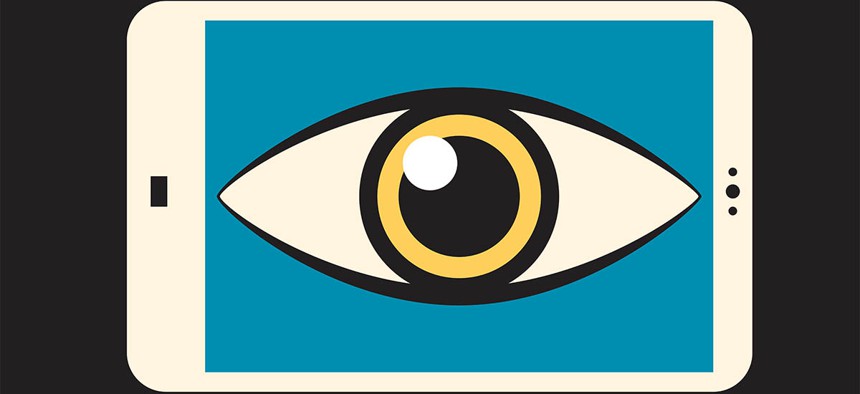Where Americans Can Be Tracked Without a Warrant

igor kisselev/Shutterstock.com
Can cops look at cellphone-location records without a warrant? It depends where you live.
Smartphones handle the jobs of many other objects: walkie-talkies, calculators, cameras. They pretend to be landlines and laptops and lightbulbs. They accomplish much of this multi-purposeness by tying into networks far vaster than any single device: into the GPS network, into the Internet, and into the cell network.
Many Americans don’t know that as they tote their phone around, some of those networks are watching. The cell network, specifically, creates a kind of record as a phone goes about its day. Every time a phone takes a call, exchanges a text, or uses an app to access the Internet, the cell provider takes notes, generating what’s called “cell site location information,” or CSLI. It records which cell tower was pinged by the phone, when that happened, and what direction its signal was coming from—and sometimes more information than that, too, depending on the newness of the phone and the tower.
Right now, in much of the U.S., law-enforcement agencies can access any CSLI from the past without getting a warrant. This is an extremely common practice: Between January and June 2015, Verizon said it received more than 20,000 of these police requests for location information nationwide. And in all of 2014, AT&T got more than 64,000 similar requests, or about 177 requests per day.
As I wrote in August, the legal status of CSLI is messy. There’s multiple kinds of CSLI, for one: Authorities often don’t need a warrant to see where your phone was yesterday (which is “historical CSLI”), but they do need one to find out where you phone is right now (a.k.a., “real-time CSLI”).
But on top of that, appeals courts disagree as to whether obtaining historical CSLI without a warrant violates the Fourth Amendment, which prohibits unreasonable search and seizure. On top of that, some states have their own laws or court rulings governing the practice. (CSLI, by the way, also isn’t the only way that authorities can surveil cellphones. I wrote a primer on how it fits in with other methods in September.)
Many advocates hoped that the Supreme Court would step into the proverbial pool—as it often does when there’s a circuit split on an important legal question—and sort out some of these problems. And the Court has generally been willing to extend Fourth Amendment protections: In the spring, it summarily ruled that GPS trackers always count as a form of search and seizure.
But last week, the Court declined to hear Davis v. U.S., which the American Civil Liberties Union brought as a kind of test case on historical CSLI. That means that the murky legal questions around CSLI continue. What a police department can do with someone’s cell records varies state by state by state. In California, cops need a warrant before they can access historical CSLI; in Texas and much of the south, a federal court has told law enforcement the opposite.
In other words, the question of whether your location can be tracked by cops depends pretty heavily on... your location.
That’s why I like this map from the ACLU, which sorts out the legal CSLI situation on a state basis. I think it’s of interest to more than just local defense lawyers. It’s a way of quickly seeing both what kind of protections your home jurisdiction entitles to—and the true spectrum of legal possibilities around the country on this one issue.
(Image via igor kisselev/Shutterstock.com)
NEXT STORY: Video: 3 Easy Ways to Clear Email Inbox Clutter






